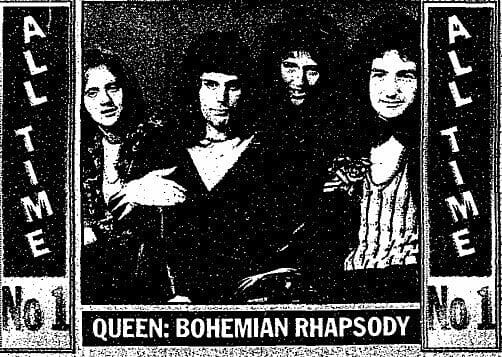│ by Lily Deans, Gale Ambassador at the University of Birmingham │
Over the past year, the cinematic world has produced numerous biopics which share the stories of stars many of us have grown up with, love and admire. The most memorable one for me was the double BAFTA-winning Bohemian Rhapsody which portrayed the fantastic story of the most talented (in my opinion!) band of the past century: Queen. The film highlighted not only the unparalleled talent of this eclectic band but also the dedication and effort that went into producing the songs we all now know and love. Interestingly, however, one section of the film focused on the release of the now classic song Bohemian Rhapsody in October 1975 and highlighted the initially negative reception of the song (from some critics). This surprised me, as I have come to know Bohemian Rhapsody as a song that passes through generations with adoration and unyielding success. Thus, when I was introduced to Gale Primary Sources, I thought it would be interesting to research the critical reviews of Bohemian Rhapsody in Gale’s online archive, to see first-hand the opinions and negative comments that were made at the time of the song’s release – and to reflect on how questionable they are in retrospect!
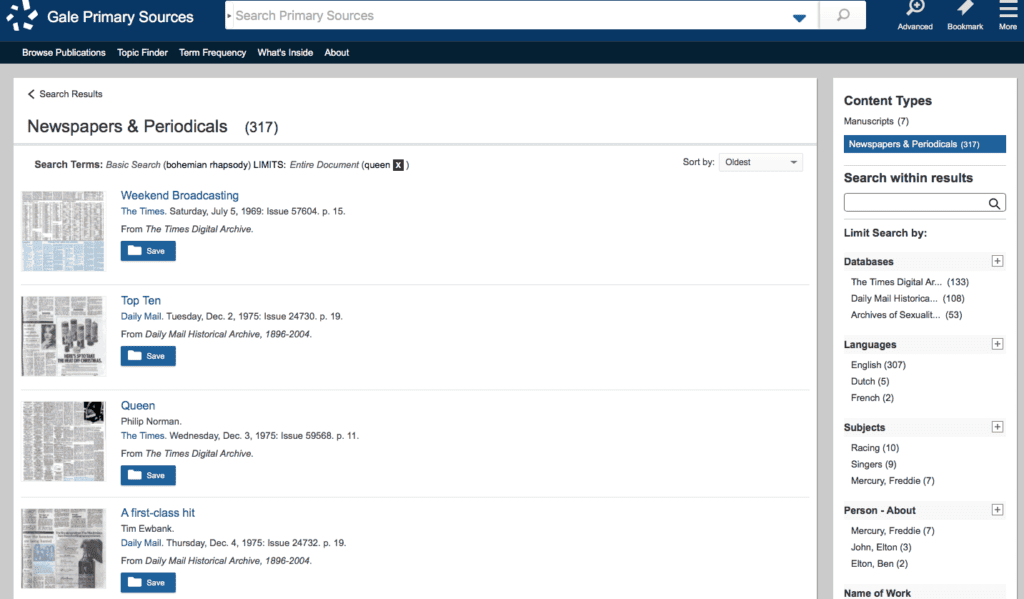
“The teeny-boppers must be wondering if they have heard aright“
An article written by Philip Norman, published on the 3rd December 1973, found in The Times Digital Archive, states that “[Queen’s] newest record ‘Bohemian Rhapsody’ at far greater length [than Killer Queen], displays even greater nerve. The teeny-boppers must be wondering if they have heard aright”. Whilst “teeny-bopper” was a term coined in the 1950s and commonly used in the 1960s and 70s to describe young teenagers who followed adolescent trends, the tone used by Norman makes it seem like he was writing with a touch of belittling mockery, as if he was certain that the band would never reach global success when releasing questionable songs like Bohemian Rhapsody.
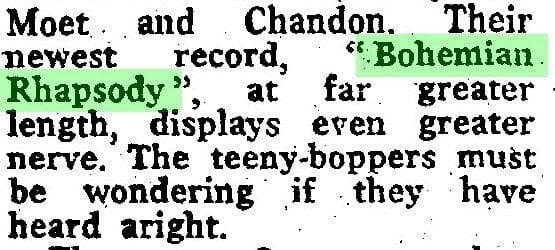
Norman then goes on to note that, whilst watching Queen live, there was an overwhelming “overture of noises” which “could become very irritating”. I wonder what Norman would say in hindsight, knowing that Freddie Mercury is regarded as the showman of the modern day.
Nine weeks at the top of the charts
Yet, although the band did receive some negative backlash from the press, it cannot be ignored that Queen’s multi-operatic six-minute song still made its way onto people’s record players. In fact, Bohemian Rhapsody actually spent a total of nine weeks at the top of the charts in 1975, thereby crushing all allegations of it being a song that questioned the legitimacy of its audiences hearing (as Philip Norman claimed). In fact, in 1983, an article found in the Daily Mail archive commented on the song’s perpetual position at the top of the charts, saying it was there “[l]ong enough for many people to become convinced that the line ‘spare him his life from these monstrosities’ was really ‘spare him his life from these pork sausages’”!
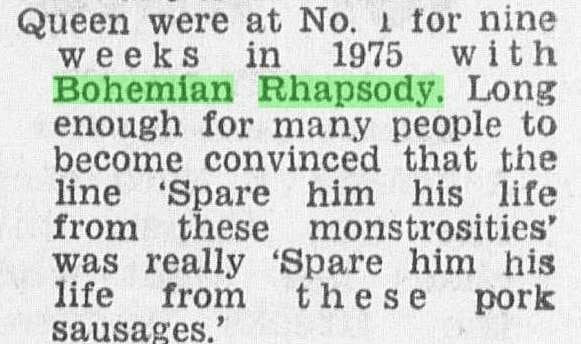
I am not sure what the band would have been bothered by most: the mixed reception of their masterpiece, or the fact that they were mistakenly thought to be singing about sausages. Either way, it is undeniable that Bohemian Rhapsody was, and still is, one of the most talked about songs of our time, crushing all contemporary claims.
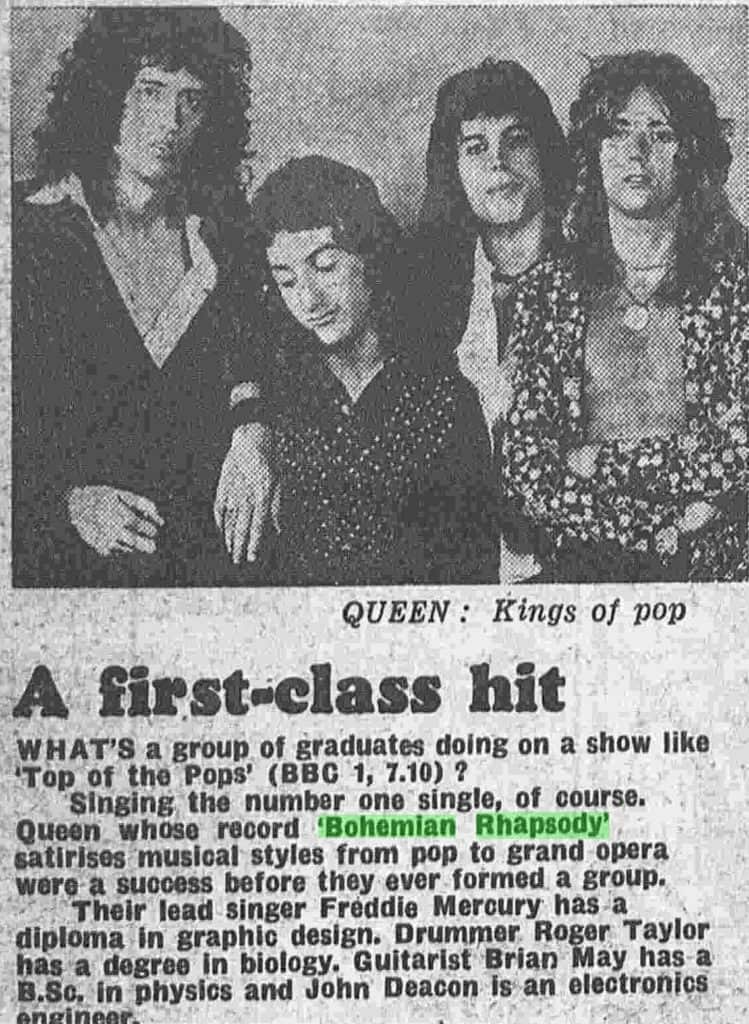
If you would like to know more about Freddie Mercury’s personal relationship with the press, check out this related blog post by James Garbett, a previous Gale Ambassador at the University of Exeter: ‘The Ultimate Showman: Freddie Mercury’s untold relationship with the UK press’.
Blog post cover image citation: Ewbank, Tim. “A first-class hit.” Daily Mail, 4 Dec. 1975, p. 19. Daily Mail Historical Archive, 1896-2004, https://link.gale.com/apps/doc/EE1866671332/GDCS?u=bham_uk&sid=GDCS&xid=a5014db3

